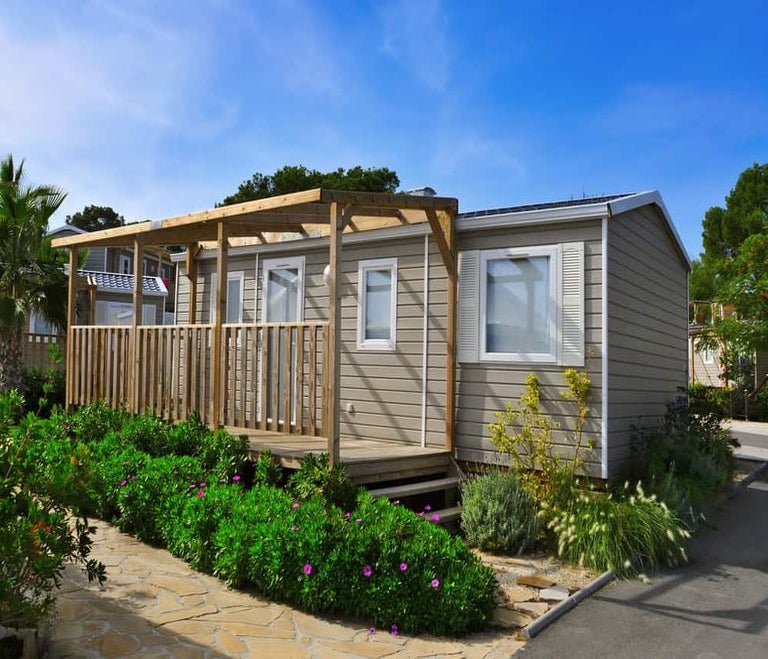Mobile and manufactured home insurance
If you have a mobile or manufactured home, you know protecting it is essential. Whether your mobile home is on private property, in a mobile home park, or in a subdivision, we can help you get the appropriate coverage at an affordable price.
Let’s take a look at what mobile home insurance covers, insurance requirements for mobile homes, and available premium discounts.
What mobile home insurance covers
Our mobile home coverage includes all the essential coverage for:
- Your dwelling
- Your belongings
- Other structures (think: fences, garages, etc.)
- Additional living expenses
- Personal liability
- Medical payments
Our policies cover damage or loss caused by common events, including:
- Fire and lightning
- Theft and vandalism
- Wind and hail
- And more
Though our mobile home insurance offers hurricane coverage for high winds, it doesn’t offer flood coverage. For the storm surges that accompany hurricanes, you’ll need flood insurance.
Common mobile or manufactured home insurance requirements
Typically, to qualify for the best rates, insurance providers require mobile homes to:
- Have anchored tie-downs in accordance with state, city, and county regulations
- Be skirted or have a fully enclosed foundation
- Have handrails anywhere with three or more steps
- Be owner occupied
- Be well maintained
How much does mobile home insurance cost?
Mobile home insurance costs can vary greatly. One major factor on your insurance premium is your location. As you might guess, mobile homeowners near the coast may pay more for their coverage than those located in an area less prone to hurricane risk.
Your dwelling coverage limits also have a significant impact on the cost of your policy, as does the size and condition of your home.
That said, our mobile home owners in Florida is $1912 per year for their coverage. The average in Louisiana is a bit higher: $ 2,181. Keep in mind that these costs are just averages. More importantly, mobile home owners who switch to Kin report savings of almost $500 on average.**
The best way to find out how much you’ll pay is to get a mobile home insurance quote from Kin!
Mobile home insurance discounts
You may be eligible for discounts if:
- Your home has fire sprinklers and smart home safety devices.
- You live in a manufactured home park.
- You are over 50 years of age.
- You opt for an electronic policy.
- You have a clean claims history.
To learn more about what discounts you qualify for, apply for a quote today.
Mobile home insurance by state
Learn more about mobile home insurance in other states. Check out our state guides:
**Louisiana and Florida customers who switched to Kin report annual savings of $478 on average. Based on Kin Customer Savings Survey conducted December 2022 - December 2023. Potential savings may vary.

